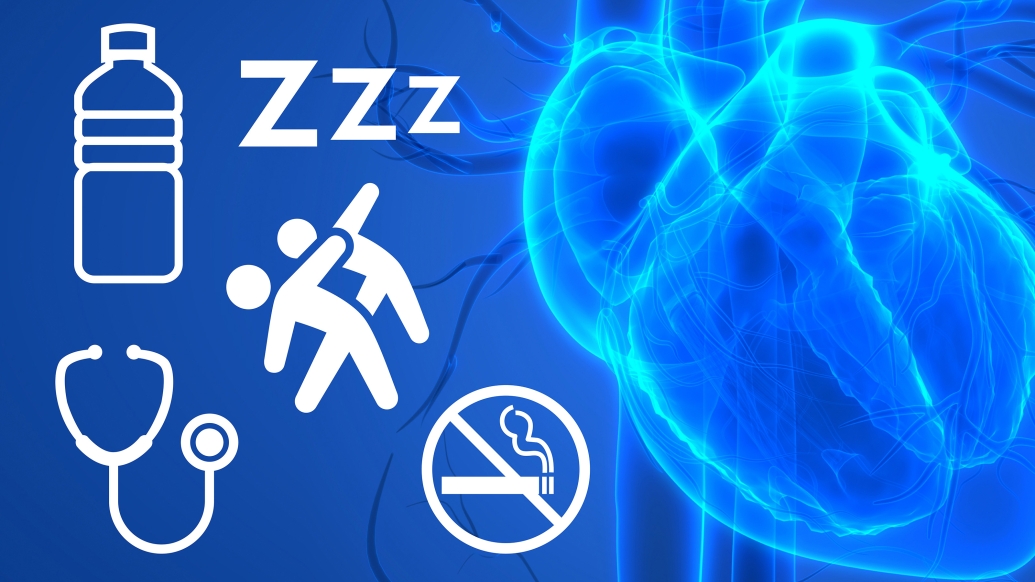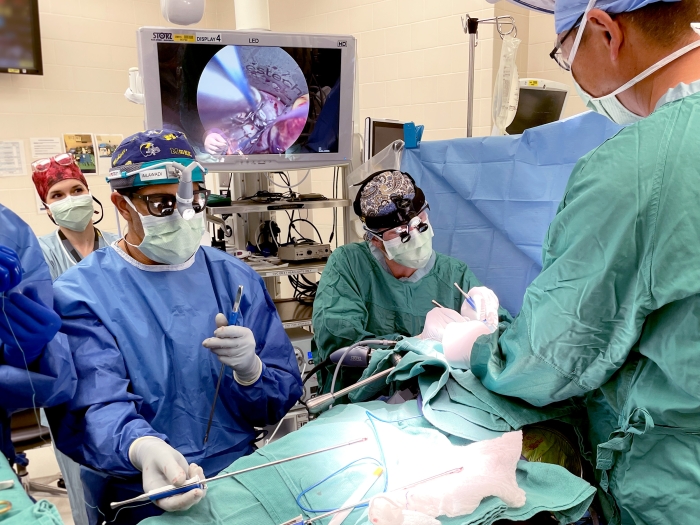Cardiologist-approved heart tips for a healthier life
5:00 AM
Author |

The recent cardiac arrest of Buffalo Bills player Damar Hamlin during a Monday Night Football game has many wondering about their own heart health.
With many new research studies, medications, supplements and therapies available, formulating a health plan that most adults can maintain throughout the year can be confusing.
But here are five tips that should be both sustainable and successful, when closely followed, to keep you heart healthy for years.
1. Diet and exercise
The familiar trope ― more exercise, healthier diet ― remains the best place to start. The benefits to your heart of a healthy diet and exercise can fill a library of books.
The typical American diet is riddled with too many calories, excessive carbohydrates and the wrong type of fats. An unhealthy diet can lead to numerous health problems — including diabetes, high blood pressure, high cholesterol, heart attack, stroke and cancer, just to name a few. Billions of dollars are spent on these health problems caused by an unhealthy diet and lack of exercise.
Without making changes, an unhealthy lifestyle can rob us of quality of life. Let’s make this year the year to get off the couch, put down the remote control and cell phone, choose a small beverage (instead of the large) and get some exercise.
2. Drink more water
As you eat better and exercise more, another health problem comes into focus: chronic dehydration.
Our body is 60% water, so better hydration is beneficial to many bodily systems, including circulation. Keeping the body hydrated helps the heart more easily pump blood through the blood vessels to the muscles. It helps the muscles work more efficiently, effectively reducing the heart stress on well-hydrated individuals.
A myriad of problems results from dehydration, including muscle cramps, fatigue, headaches and immune system dysfunction. Take your water bottle to work or school, fill it several times a day, and enjoy the benefits of drinking water. The cost is almost nothing, while the benefits are enormous.
3. Remember your annual check-up
During the COVID-19 pandemic, many in-person health examinations and preventative studies were canceled. Now is the time to make sure you see your healthcare provider to get a thorough physical examination and recommended tests (blood work, X-rays, etc.) These include screenings for diabetes, hypertension and other diseases of the heart.
In addition to annual check-ups, don't forget any important screening tests for your demographic group, such as a colonoscopy or mammogram. As the pandemic wanes, health providers are starting to see patients return for evaluation. Unfortunately, they're are detecting advanced health problems that were ignored during the pandemic. The treatment for these ignored problems will be more demanding, aggressive, expensive ― and possibly less successful.
See your healthcare provider soon to get a thorough physical exam and recommended tests to prevent any avoidable health problems.
4. Quit smoking
The United States has done an amazing job to decrease cigarette smoking. The detrimental health effects of smoking are profound, well-documented and affect every system in the body.
In the last few years, however, vaping and legalized recreational marijuana use have eroded our progress. Heart attacks are among the many side effects of smoking, which also include oral cancers, lung cancers, strokes and COPD (emphysema). Chemicals used in popular vape flavors like clove, mint and vanilla can harm blood vessel cells that help keep the heart healthy.
Make this the year to stop lighting up or vaping.
5. Sleep
One additional concern to mention: you need seven to nine hours of sleep every night. This might mean turning off the TV, not surfing the internet as long or putting down our video games.
Studies show short sleep duration or poor sleep quality is associated with high blood pressure, elevated cholesterol and atherosclerosis. Habitual short sleep increases the chance of cardiovascular events.
Sleep also keeps us alert and attentive for the following day. Get a good night's sleep, so the following day is yours to conquer!

Explore a variety of healthcare news & stories by visiting the Health Lab home page for more articles.

Department of Communication at Michigan Medicine
Want top health & research news weekly? Sign up for Health Lab’s newsletters today!





